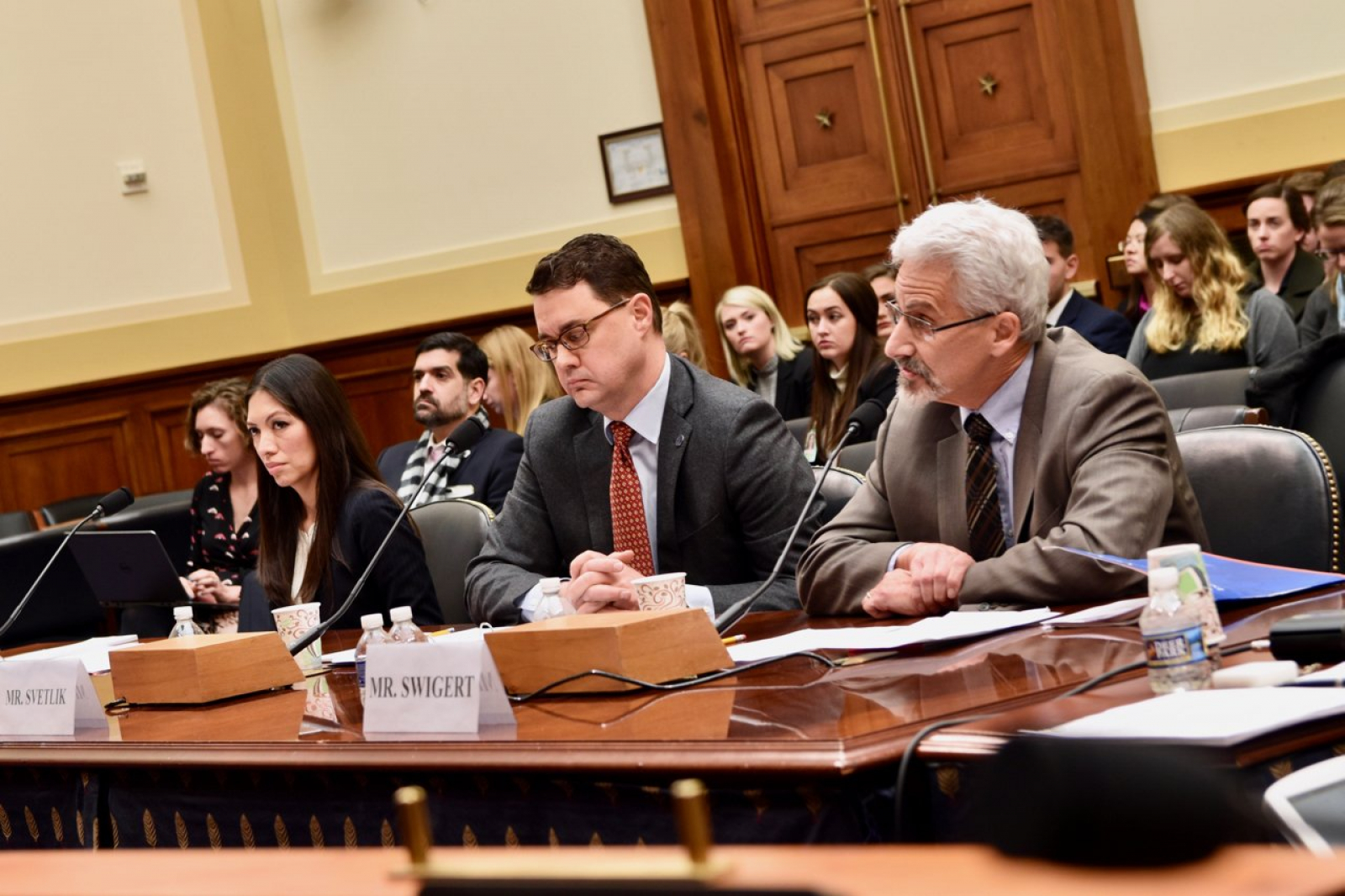
NDI’s Jim Swigert testifies before the House Foreign Affairs Western Hemisphere Subcommittee about the upcoming 2018 elections in Latin America
SHARE
NDI’s Regional Director for Latin America and the Caribbean (LAC), Jim Swigert, was invited to testify on January 10 before the House Foreign Affairs Subcommittee on the Western Hemisphere about the 2018 elections in Latin America and their implications for U.S. foreign policy. Chairman Paul Cook (R-OH) noted that 12 elections will be taking place in nine countries in the region, including six presidential elections. “Each of these events will test the state of democratic institutions, freedom and rule of law in the region,” said Cook, “and we must never take these principles for granted.”
Chairman Cook and Ranking Member Albio Sires (D-FL) presided over the hearing, which also included testimonies by Katya Rimkunas from the International Republican Institute (IRI) and Michael Svetlik from the International Foundation for Electoral Systems (IFES).
Nearly two-thirds of Latin Americans will go to the polls in 2018, including in large established democracies like Colombia, Brazil and Mexico. Swigert highlighted that democratic elections are today the norm for the Americas, but a handful of exceptions exist—Cuba the most glaring one. Venezuela is another. While a new presidential election is constitutionally required in 2018. Under what conditions this election will take place—if at all—is uncertain. Nicaragua’s electoral process continues to be characterized by opaqueness and deliberate restriction of political competition. The scope of irregularities in Honduras’ recent flawed elections has cast a cloud over the legitimacy of the process and could generate serious instability if unaddressed. Steps are needed to enact a robust series of overdue electoral and political reforms.
Though progress is certainly ongoing in certain parts of Latin America, Swigert argued that “public confidence in democratic institutions is in decline.” It is more important than ever, therefore, to support the upcoming elections in Latin America in order to preserve the recent gains democratic activists have won throughout the region.
“We often hear that sound elections are an essential but insufficient condition for democracy. Unquestionably that is true,” said Swigert. “The converse is also important; bad elections are catalysts for instability.” He stressed that the stakes are high for the region: “failed elections would damage governance and set back hemispheric cooperation on solutions to shared challenges of economic growth, trade, drug trafficking, migration and the crisis in Venezuela.”
To help support democratic activists as they fight to safeguard their own elections, Swigert recommended that the United States and the international community direct political support and resources towards both domestic election monitoring and international election observation, which can “reinforce the efforts of national actors.”
Members of Congress present shared similar concerns about the challenges facing the region: corruption, violence, inequality and the economy. As Representative Gregory Meeks (D-NY) put it, democracy in Latin America is not at risk however, “it is being challenged…it is maturing and being fortified.” Building up strong institutions as way to help support the democratic process was a common theme throughout the hearing.
Swigert urged the United States to remain engaged in the region beyond election day. “Ongoing efforts to strengthen democratic institutions are needed,” he concluded, “so that legislatures, political parties and governments can better address priorities of improved citizen security, economic growth and reduced corruption.”
See Jim Swigert’s full testimony here.


